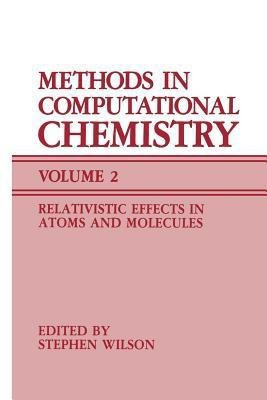Methods in Computational Chemistry(English, Paperback, unknown)
Quick Overview
Product Price Comparison
Thisvolume isdevotedtomethodsfor thestudyoftheeffectsofrelativity on theelectronicstructure ofatomsand molecules. The accurate descrip- tionofrelativisticeffectsinheavyatomshaslongbeenrecognizedasoneof the central problems ofatomic physics. Contemporary relativistic atomic structure calculations can be performed almost routinely. Recent years have seen agrowinginterestin thestudyoftheeffects ofrelativityon the structureofmolecules. Even for molecularsystemscontainingatoms from thesecondrowoftheperiodictable theenergyassociatedwith relativistic effects is often larger than that arising from electron correlation. For moleculescontainingheavieratoms relativistic effects become increasingly important,andforsystemscontainingveryheavyatomsrelativityisknown todominatemanychemicalproperties. In this volum~, one of the pioneers of relativistic atomic structure calculations,Ian P. Grant,providesadetailedsurveyofthecomputational techniquesemployedincontemporarystudiesoftheeffectsofrelativityon atomicstructure. Thisisanareaofresearchinwhichcalculationscanoften lead to a particularly impressive degreeofagreement between theoryand experiment.Furthermore, theseatomicstudies haveprovided manyofthe foundations of a fully relativistic quantum chemistry. However, the spherical symmetry ofatoms allows significantsimplificationsto bemade in their quantum mechanical treatment, simplifications which are not possibleinstudiesofmolecules. Inparticular, as is wellknown from non- relativistictheoriesofmolecularelectronicstructure,itisalmostobligatory to invoke the algebraic approximation in molecular work and use finite basis set expansions. The problem of describing relativistic effects in molecules is addressed in Chapter2 by Stephen Wilson. This chapter is devotedtoab initiorelativisticmolecularstructurecalculationsinwhichall electrons are explicitly considered. The problem of induding relativistic effects in molecular studies is also addressed in Chapters3 and 4. In Chapter 3, Odd Gropen describes the use of relativistic effective core ix x Preface potentials in calculations on molecular systems involving heavy atoms. This approach can lead to more tractable algorithms than the methods described in Chapter2 and thus significantly extends the range of applications.The use of semiempirical methods has yielded a wealth of informationabouttheinfluenceofrelativityonthechemistryoftheheavier elements. Thisimportantarea is reviewed inChapter4 by Pekka Pyykk6. Finally, inChapter5, Harry M.


